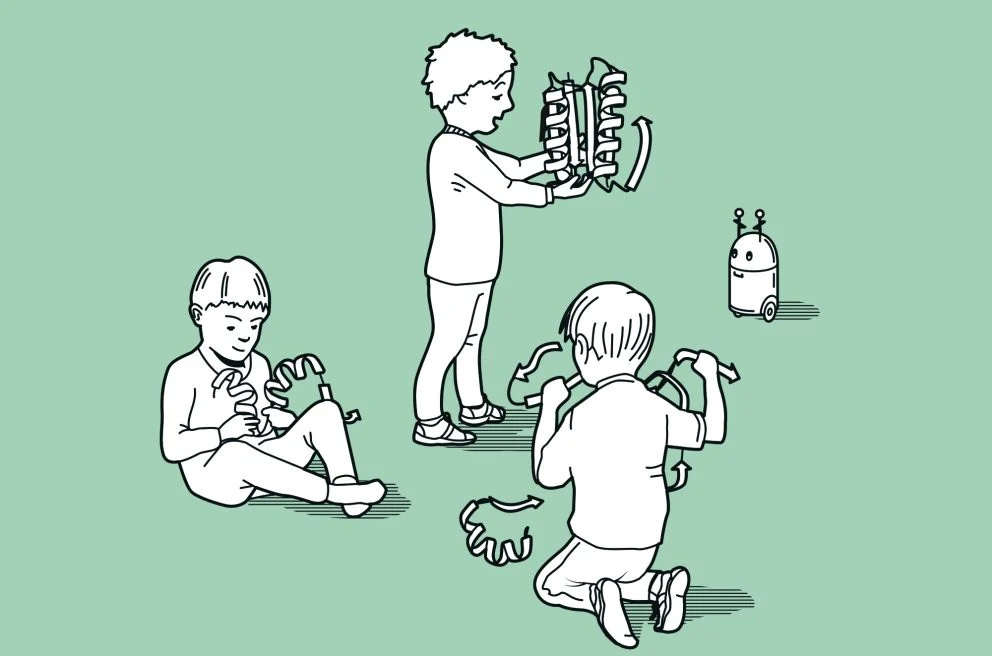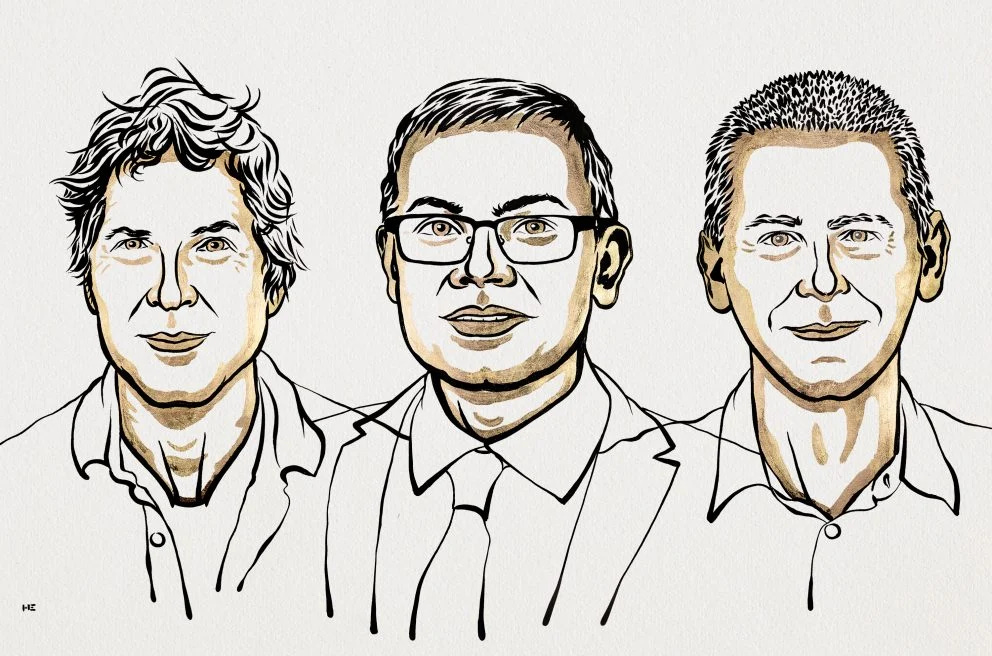AI: Two Nobels for AI in 2024. RTZ #505
...AI 'science projects' acknowledged for their basic contributions in physics and chemistry
Much of the focus on AI in this AI Tech Wave is of course on the big potential benefits of AI products and services, and the commercial opportunities for companies and investors along the way. But the basic underlying technologies driving AI have massive scientific potential as well, a topic I’ve addressed as well.
This week we saw this come to the fore, with AI seeing not one but two Nobel prizes in physics and chemistry. And I think it’s worth taking a closer look. As Axios puts the broader context in “AI gets it Nobel moment”:
“AI researchers notched two Nobel Prizes this week, elevating their work and field into the upper echelons of scientific achievement.”
“Why it matters: There's wide debate about whether, and how, AI will transform the world — but this week's recognition underscores the behind-the-scenes ways the technology is already changing science itself.”
“It's solving intractable problems and analyzing vast troves of scientific data. At the same time, it's raising concerns about the ways it might put cutting-edge science in the hands of bad actors.”
“The big picture: The technical foundations of AI were laid over decades, but its advances have only received wide recognition more recently with the advent of chatbots and the popularization of generative AI.”
In terms of the specifics, AI scientist, and long-time AI critic/pragmatist Gary Marcus notes in “Two Nobel Prizes for AI, and Two Paths Forward”:
He goes on to give his views on the merits of the two awards, and the full piece is worth reading. His conclusion though is:
“Hinton has certainly had a profound influence on machine learning, but it’s still not entirely clear what he specifically won the prize for, or how that has advanced physics. People will probably be asking questions about this particular award for a long time.”
“Hassabis’s win (shared with DeepMind researcher John Jumper), in contrast, is a slam dunk. (So is Baker’s - I first saw him speak in 2017 at an event organized by Paul Allen and his work on synthesizing new proteins was so mindblowing that it was immediately obvious Baker would win a Nobel sooner or later)”
“AlphaFold is a huge contribution to both chemistry and biology. It arguably still hasn’t lived up to the extreme hype that I have sometimes seen, but it’s a fantastic contribution, used widely by biologists, and in my mind one of the two biggest contributions of AI to date, if not the biggest. (Web search is powered by AI, and has been transformational in different ways).”
As the Nobel Prize committee described the Physics awards, they noted that the recipients ‘used physics to find patterns in information”:
“Machine learning has long been important for research, including the sorting and analysis of vast amounts of data. John Hopfield and Geoffrey Hinton used tools from physics to construct methods that helped lay the foundation for today’s powerful machine learning. Machine learning based on artificial neural networks is currently revolutionising science, engineering and daily life.”
“John Hopfield and Geoffrey Hinton.”
They added:
“Because physics has contributed tools for the development of machine learning, it is interesting to see how physics, as a research field, is also benefitting from artificial neural networks. Machine learning has long been used in areas we may be familiar with from previous Nobel Prizes in Physics. These include the use of machine learning to sift through and process the vast amounts of data necessary to discover the Higgs particle. Other applications include reducing noise in measurements of the gravitational waves from colliding black holes, or the search for exoplanets.”
On the Chemistry AI prize, they noted
“The Nobel Prize in Chemistry 2024 is about proteins, life’s ingenious chemical tools. David Baker has succeeded with the almost impossible feat of building entirely new kinds of proteins. Demis Hassabis and John Jumper have developed an AI model to solve a 50-year-old problem: predicting proteins’ complex structures. These discoveries hold enormous potential.”
“David Baker, Demis Hassabis and John Jumper.”
In a post a few days ago, I noted how much of the focus of commercial companies in this AI Tech Wave is about rapidly converting AI ‘Science Projects’ into AI products and services at scale.
nobelnobnoooThis week’s Nobel prizes illustrate that the ‘Science Projects’ themselves are worth acknowledging all on their own as well. Kudos to all the Nobel recipients. Stay tuned.
(NOTE: The discussions here are for information purposes only, and not meant as investment advice at any time. Thanks for joining us here)








